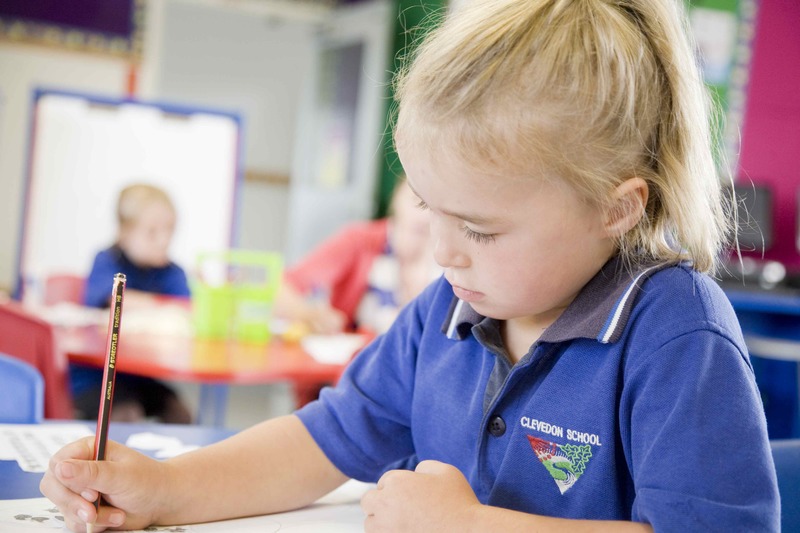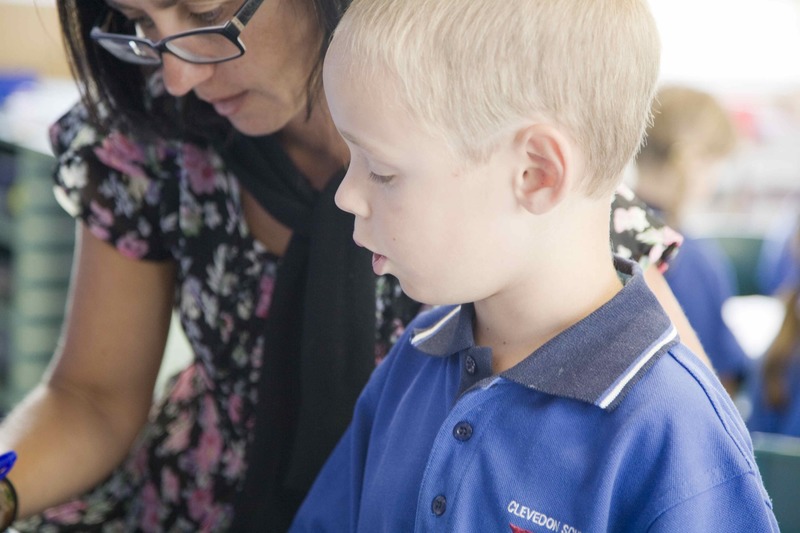Assessment and Reporting at Clevedon School
Introduction
 The purpose of assessment at Clevedon School is to
improve student learning, to provide information on student learning and to contribute to the efficacy of learning programmes. Assessment is the ongoing process of gathering evidence for and of learning. This evidence will be used to give recognition and timely feedback to the learners and all other stakeholders. Assessment will reflect best practice that supports the learner and the teacher in the promotion of student achievement.
The purpose of assessment at Clevedon School is to
improve student learning, to provide information on student learning and to contribute to the efficacy of learning programmes. Assessment is the ongoing process of gathering evidence for and of learning. This evidence will be used to give recognition and timely feedback to the learners and all other stakeholders. Assessment will reflect best practice that supports the learner and the teacher in the promotion of student achievement.
At Clevedon School we believe assessment is integral to all teaching and learning. Our approach to assessment recognises the importance of assessing the process of learning as well as the products of learning.
The main aim of assessment at our school is to provide feedback on the learning process and the development of the various elements of learning such as the development of knowledge, skills, concepts, key competencies and values to inform further learning. Students and teachers are actively engaged in assessing the students’ progress as part of the development of their wider critical thinking and self-assessment skills.
The assessment component in the school’s curriculum can be subdivided into three closely related areas
- Assessing – how we discover what the students know and have learned
- Recording – how we collect and analyse data
- Reporting – how we communicate information about assessment
1. Assessing: how we discover what the students know and have learned
The assessment of the students’ development and learning is an essential component of the curriculum, and helps to inform continued development, learning and teaching.
Students are observed in a variety of situations and a wide range of assessment strategies are implemented.
The classroom teachers employ a range of formative and summative assessments that demonstrate student achievements.
Summative assessment
Aims to give teachers and students a clear insight into students’ understanding. Summative assessment is the culmination of the teaching and learning process, and gives the students opportunities to demonstrate what has been learned. It can assess several elements simultaneously and informs and leads to improvement in student learning and the teaching process.
Formative assessment
Provides information that is used in order to plan the next stage in learning. It is interwoven with learning, and helps teachers and students to find out what the students already know and can do. Formative assessment and teaching are directly linked and function purposefully together. Formative assessment aims to promote learning by giving regular and frequent feedback throughout the learning process. This process helps learners to improve knowledge and understanding, to foster self-motivation and enthusiasm for learning, to engage in thoughtful reflection, to develop the capacity for self-assessment, and to recognise the criteria for success. There is evidence that increased use of formative assessment particularly helps those students who are low achievers to make significant improvements in their understanding.
 Assessment in the classroom includes:
Assessment in the classroom includes:
- Collecting evidence of students’ understanding and thinking
- Documenting learning processes of groups and individuals
- Engaging students in reflecting on their learning
- Students assessing work produced by themselves and by others
- Developing and/or using clear rubrics
- Identifying exemplary student work and using exemplars as benchmarks
- Keeping records of test/task results
Standardised assessments
Standardised assessments are used as a part of the whole school assessment practice in an effort to gain as much information as possible about the student as a learner and about the programmes of learning.
The types of assessment used in the school are many
and varied and go towards making up the whole picture of learning.
Standardised assessments are specifically used for the following reasons:
- To inform teaching
- To provide information that shows growth over time
- To provide longitudinal data for whole school data analysis
- To inform decisions about programmes
- To allow teachers to determine those students whose basic skills fall outside the normal range expected for students of that particular age. This information is used alongside other assessment information to determine those students who will access support programmes, or who may need individual learning plans.
- To form part of the process of reporting to parents
2. Recording: how we collect and analyse the data
Clevedon School uses a range of strategies and approaches to gather information about student learning. Teachers record this information using a variety of tools.
Teachers use a range of methods to document the evidence of student learning and understanding. This includes written comments, using checklists against the learning criteria, explanations, as well as annotated pieces of students’ work.
3. Reporting: how we communicate information about assessment
Reporting on assessment at Clevedon School includes communicating what students know, understand and can do. Reporting involves parents, students and teachers as partners and is honest, comprehensive and understandable to all parties and in line with the Ministry of Education’s guidelines.
Reporting to parents occurs through:
Written reports
The written reports provide a snapshot of your child’s learning in relation to various areas of learning, including the curriculum expectations in reading, writing and mathematics. These reports are provided to parents twice per year.
The mid year report shows how the child is progressing toward meeting the curriculum expectations for their year level. The end year reports show how the child has achieved against the curriculum expectation for their year level.
The achievement levels they will be marked against for reading, writing and mathematics in the mid year reports are:
- Achievement is of concern
- Working below the curriculum expectation
- On track to meet the curriculum expectation
- Already met the curriculum expectation
The achievement levels they will be marked against for reading, writing and mathematics in the end year reports are:
- Well below the curriculum expectation
- Below the curriculum expectation
- At the curriculum expectation
- Above the curriculum expectation
Reporting period
Students receive reports at the end of term 2 and at the end of term 4.
Three way conferences / Whanaungatanga meetings (student-parent-teacher)
Our whanaungatanga meetings are held early in term 1. Parents hold a wealth of knowledge about their child, so this is an important time to share this information with the teacher. It is often too early in the year for the teacher to give detailed information about how well the student is working and to what extent they are reaching the goals set by the programme. They will however alert parents to how their child has settled into the class and if there are any areas that they have become aware of that may require further discussion at a later date.
This is a formal meeting between the teacher, parent and the child.

Our second lot of conferences follow the mid year written reports. Parents will be notified when these meetings are coming up and will be able to make an appointment through our School Interview system online. These are Student Led Conferences.
Student Led Conferences are formal reporting sessions with both parents and students and are led by the student. Samples of work are shared and achievements and areas for future focus are discussed.
Student led conferences
This meeting is held around the middle of the year and allows each child to take ownership of their own learning by leading a conversation with their parents on where they are at and where to next. A detailed explanation of these important meetings can be found by clicking here.
Team newsletters
The purpose of the team newsletters is to communicate with parents general information related to the teaching and learning of that year level in a particular term. These are found on our website under the 'learning' tab.
Formal and informal meetings (teacher or parent initiated)
Parents are welcome to arrange a mutually suitable time with the teacher to discuss progress or raise any areas of concern anytime throughout the year.
Parent workshops
At times parent workshops will be provided which will provide an opportunity for parents to learn more about the different aspects of the programme.
Year level share times
These occur at various times throughout the year for each year level. Parents are invited to come to school to view student learning.